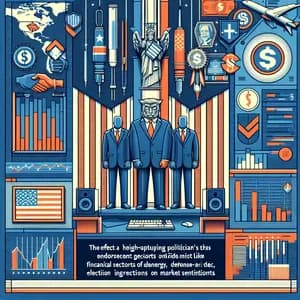CME Lawsuit: The Clash of Electronic Trading vs. Traditional Markets

The Impact of Electronic Trading on Traditional Markets: A Look at the CME Lawsuit
As the financial markets continue to evolve, the role of electronic trading platforms has been a major point of contention, particularly for traditional floor traders. A recent lawsuit against the Chicago Mercantile Exchange (CME) has brought these issues to the forefront. The trial is set to commence on July 7, 2025, involving Chicago traders who claim that the CME's transition to electronic trading has significantly harmed their livelihoods. This case could have far-reaching implications for the trading landscape and investors alike.
The CME, a leading derivatives marketplace, has been at the center of this shift, which has seen a decline in traditional floor trading in favor of more efficient electronic systems. This transition has not only changed the dynamics of trading but also raised questions about market fairness and the competitive landscape. As stock investors, it is essential to consider how these changes could influence various sectors and companies.
Several companies are closely tied to this evolving market environment:
- Interactive Brokers Group, Inc. ($IBKR) - This brokerage firm has capitalized on the rise of electronic trading, providing a robust platform for investors. As more traders move online, IBKR stands to benefit from increased trading volumes and commissions.
- Charles Schwab Corporation ($SCHW) - With its strong emphasis on digital investment services, Schwab has been a major player in the electronic trading space. The firm has consistently adapted to market trends, attracting both new and experienced investors.
- CME Group Inc. ($CME) - As the focal point of the ongoing lawsuit, CME Group is pivotal in the discussion surrounding electronic trading. The outcome of this trial could impact its operations and market share, which is vital for investors to monitor.
- E*TRADE Financial Corporation ($ETFC) - E*TRADE has also embraced electronic trading, offering users a user-friendly platform that appeals to retail investors. The company's performance may be influenced by the continuing shift away from traditional trading.
- TD Ameritrade ($AMTD) - Known for its comprehensive trading solutions, TD Ameritrade has adapted well to the electronic trading model, positioning itself as a leader in the market. Investors should be aware of how ongoing litigation and market dynamics could impact its business model.
The outcome of the CME lawsuit could reshape the trading landscape, potentially leading to new regulations and a reevaluation of how electronic markets operate. As investors, staying informed about these developments is crucial for making sound investment decisions.
In conclusion, the transition from traditional floor trading to electronic platforms has created both opportunities and challenges in the financial markets. As the trial unfolds, it will be interesting to see how it influences the strategies of major trading companies and the broader investment community.
Read more: Old-School Floor Traders Finally Get Their Day in Court Against CME




